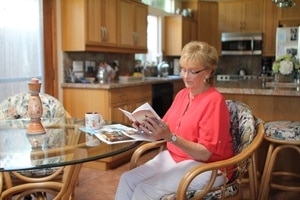#WeTakeCareOfPeople

We want to offer some tips for children caregivers on how to keep a home safe so aging parents are able to live happy, healthy, and safe in the comfort of their own home.
There comes a time when aging parents must take precaution when getting around in the home. Whether it is dementia, Alzheimer’s or frailty, this time comes for a great majority of our parents—it is best to be prepared.
Research shows that living at home is often the best option for physical and mental wellbeing. Here are some of the benefits of in-home care:
- Provides individuals needing care with dignity and independence.
- May help prevent or postpone expensive hospital or nursing home care.
- Allows maximum freedom and comfort for the individual.
- Supports families while keeping them together.
There are many easy and affordable ways to transform your home to a place where you can feel safe leaving your aging parent alone. Taking the steps to make your home safe will ensure your parent gets to stay in the comfort of their home and not have to be put in a nursing home.
Bathrooms: Bathrooms are important to make safe because of splashing water onto the floor and an increase amount of going from a sitting to a standing position. Installing gab bars on wall around the tub and besides the toilet will help with the sitting and standing. To avoid slipping add nonskid mats to bathtubs and on floor surfaces that may get wet.
Kitchen: Keep commonly used items within reach. If an item is high up be sure to have a sturdy step stool. Also, make sure appliance cords are out of the way to avoid tripping.
Bedroom: For the bedroom, adjust the height of the bed to make it easy to get in and out of. A bedside table is important. Be sure to have a bedside light with a switch that is easy to turn on and off and also put a cordless telephone within reach.
Outdoors: It is important to remember there are also hazards outdoors. Be sure to repair any abrupt edges of sidewalks and driveways to avoid tripping. Installing adequate lighting by doorways and along walkways will help nighttime vision problems.
Every parent is different in their needs but taking these little steps can go a long way in ensuring that your loved one remains safe and secure in their home.